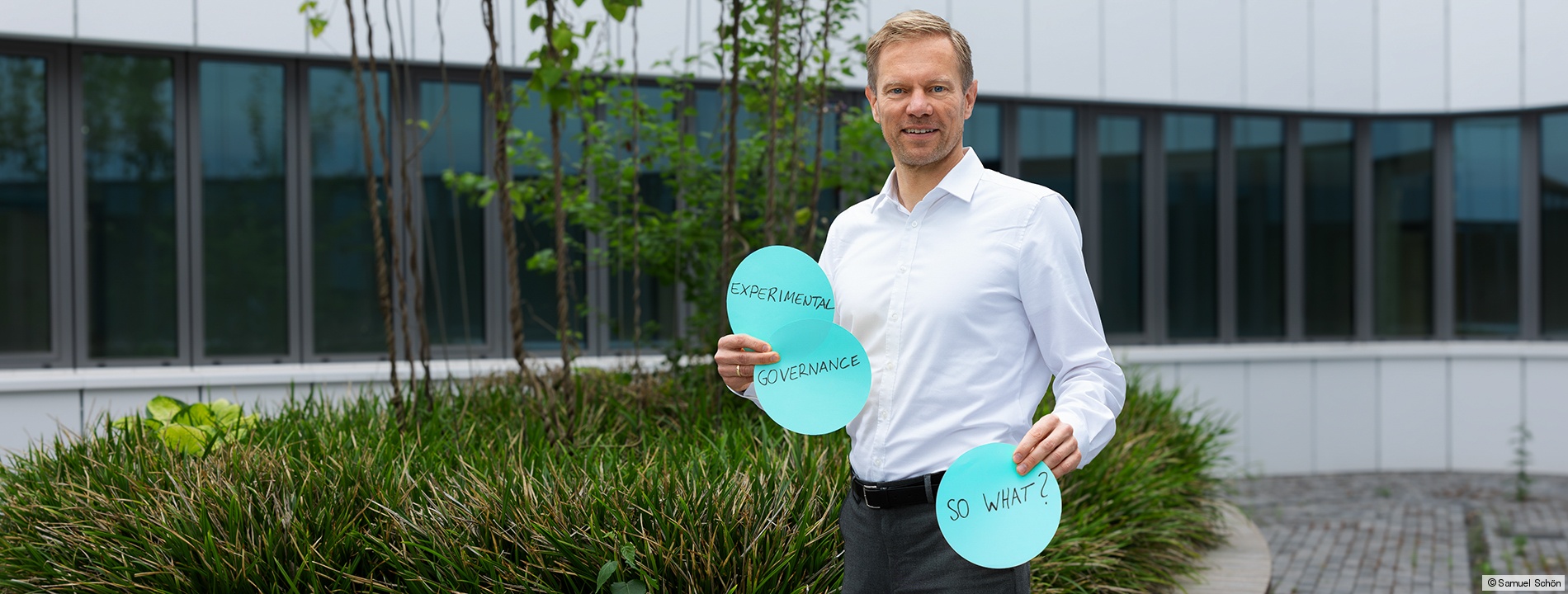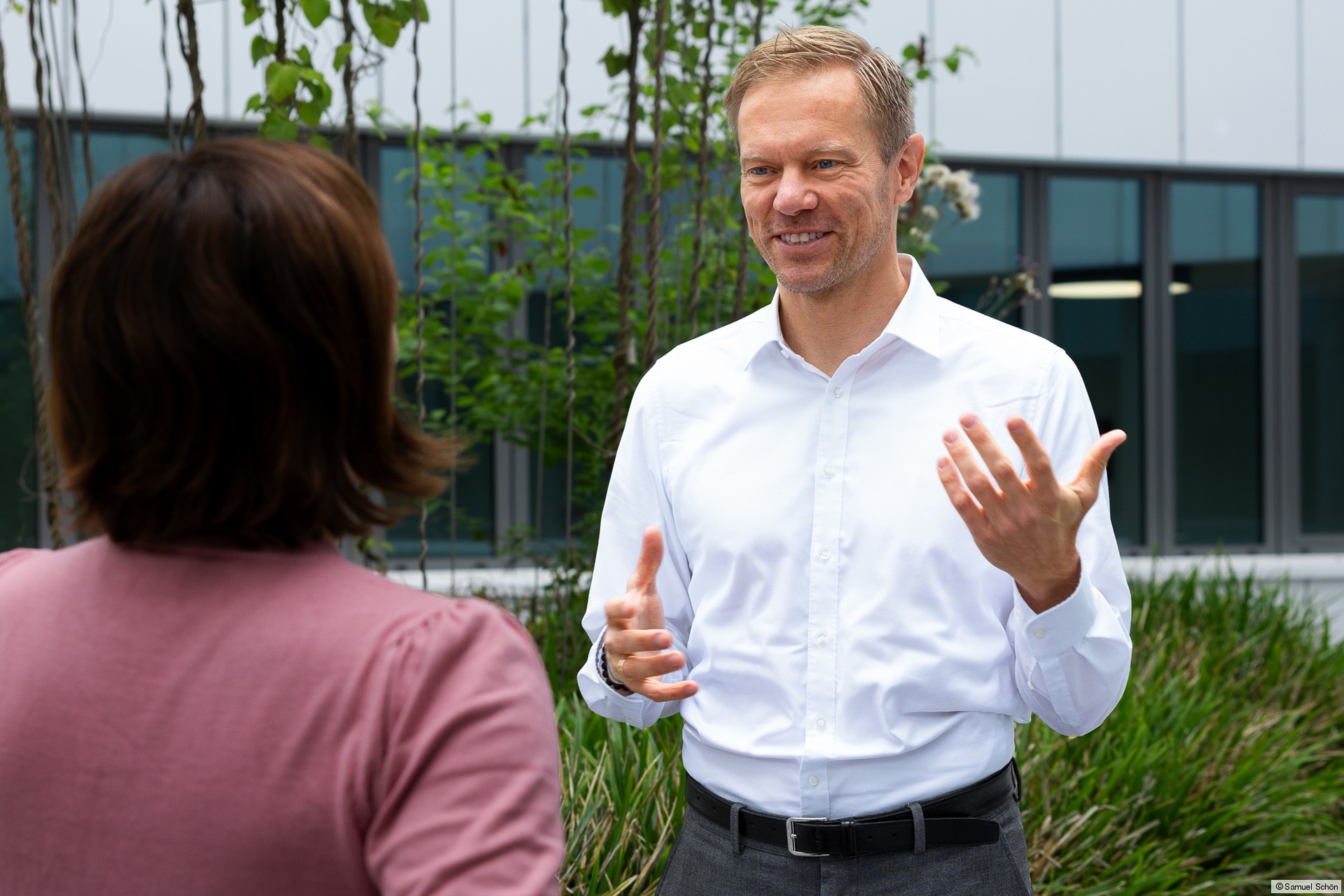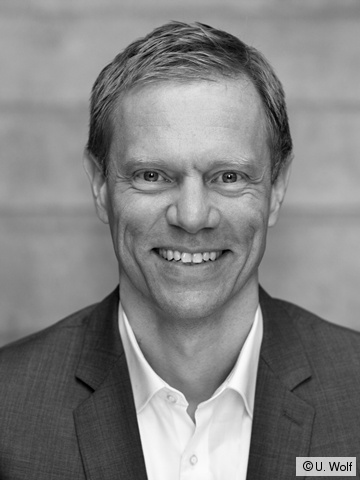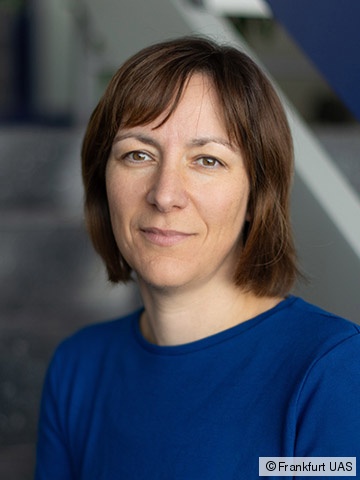The Innovation Project
EGONET
In his innovation project EGONET (Experimental Governance for Climate-Neutral Cities), Timo von Wirth is pursuing three goals. He wants to:
- develop a new teaching-learning module on experimental governance for on-site teaching and the digital U!REKA campus
- submit a European research proposal with the U!REKA partner universities
- make tailor-made contributions to the U!REKA Centre of Expertise Innovative Governance and Citizen Engagement
In order to contribute to more climate neutral cities, he is researching new approaches to rules, decisions and the governance of the common good. These approaches are considered as social innovations and include, for example, temporary street experiments to test safer and fairer use of space in cities, or test fields for autonomous driving as well as real-world laboratories for the urban circular economy. They are suitable for learning about new design approaches together with practice partners and civil society and are supposed to help accelerating planning processes.
In Conversation with Prof. Dr. Timo von Wirth
Timo, what is your innovation professorship about?
Society is finding it difficult to regulate collective challenges, such as measures for climate protection and adaptation to climate change. In recent years, there has been an increasing focus on how we can test measures on the ground more quickly and thus learn which measures are more or less suitable. This is the idea of experimental governance, which can be applied to all important sectors such as mobility, energy or agricultural sectors.
Local change can destabilize and upset people. It might trigger strong forces of inertia and often emotionally loaded resistance to change. Temporary interventions offer a place for such dynamics to be addressed. If carried out well, experimental governance has the potential to explore the future together, accelerate planning and strengthen democracy. From a scientific perspective, however, we need to better evaluate and understand the various approaches. My EGONET project aims to contribute to this.
What specifically will you be doing over the next two years?
Firstly, together with our U!REKA partners, I would like to initiate new research projects and case studies across Europe. With these studies, we want to investigate how planning and democratic decision-making processes can be supplemented with experimental modes of governance. Some countries in Europe are ahead of us in terms of the flexibility of governance and the establishment of such forms of experimentation. It therefore makes sense to analyse these approaches in depth across Europe in order to learn from each other. The U!REKA Centre of Expertise Innovative Governance and Citizen Engagement deals with the question of how to develop new governance approaches towards a culture of experimentation, for example.
Secondly, I would like to anchor the topic more substantially in university teaching. It is exciting for students to learn about current research topics with concrete practical relevance. They can be involved in the temporary interventions and scientific evaluation of such approaches by carrying out methodologically sound observations, surveys and measurements. They learn how social change works on a small scale (or not) and how complex planning, participation and decision-making processes evolve in reality.
What is the aim of your innovation professorship?
Firstly, I would like to develop a new teaching module on experimental governance that can be taught at our university as well as hybrid at the U!REKA partner universities. I will be organising a pilot course with Amsterdam UAS for students from Frankfurt and Amsterdam in November 2025.
Secondly, I hope that the Centre of Expertise will enable us to exchange and network internationally on issues of governance for sustainability and strengthen joint learning processes.
And thirdly, I would like to write a joint research proposal with European partners that focuses on systematic evaluation with concrete examples from various European countries.
As a symbolic object for your project, you have brought these three workshop notes with the words "Experimental Governance. So what?!" Why?
Experimental spaces such as street experiments or real-world laboratories for sustainability have become ‘fashionable’ over the past ten years. From a scientific point of view, however, it is important to remain critical and to continue to scrutinize this idea of experimental governance. We need to better understand what these approaches can contribute as new local ‘spaces for reflection, action and democracy’, for example as part of a currently discussed state reform. A real-world laboratory law has already been developed at federal level, and there are already a few experimental clauses in some laws and administrative regulations. But here, too, the question is: ‘So what?’, what do they allow for whom in practice and how can these approaches be developed further?
How are you organising the international dimension of your innovation professorship?
We should compare such approaches across Europe and better understand what is already happening in other countries. In the Netherlands, experimental governance is more established. Research and innovation should be considered internationally, and concrete contacts with colleagues in Amsterdam, Ghent and Helsinki have already been established at the U!REKA Research Days. It is very important to me to strengthen international networks for our university in research and teaching.
What contribution can your project make in so-called times of polycrisis?
We are currently experiencing that sustainability issues are being politically marginalised, even though there are legally binding requirements. This leads to additional burdens and higher costs in the future. I therefore consider the question of governance reforms to be important: how can social actors become more capable of acting and more agile in their binding actions towards shaping a livable future?
Experimental governance can make a contribution to this. Organising such experiments locally and with the participation of civil society or the private sector can have the effect of strengthening democracy. This is because well-designed real-world laboratories or urban experimentation zones in which citizens participate enable them to experience self-efficacy. However, you need a good participation process. This includes honest co-creation, acting equally and making power issues and limitations of such as process transparent.
What personal significance does the project have for you?
This topic is exciting and the innovation professorship gives me the freedom to strategically develop teaching and research. I am really keen to identify new ways in which we can live together more sustainably in our cities and socially cope with the existing lines of conflict regarding societal changes. From a scientific perspective, it is important to understand the effects of such approaches for participation and co-design for various social actors. I am convinced that experiments can be socially useful, but evaluation is still in its infancy.
Thank you very much for the interview!




